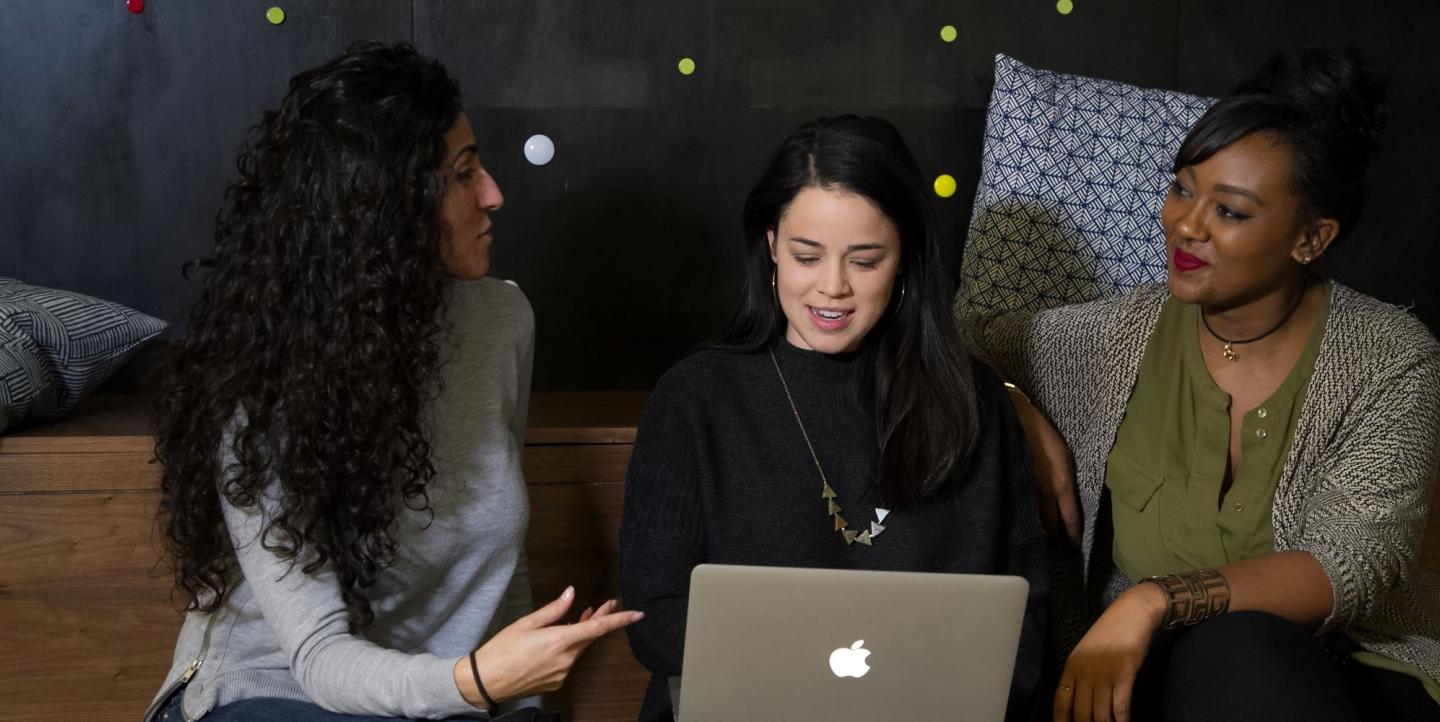More than 2 billion women globally don’t have equal access to income. The majority of countries also have legal barriers in place preventing women’s full economic participation in society. Gender inequality exists in the workplace, personal relationships, and many other facets of society.
Media outlets can help change this reality through the publishing of gender-sensitive content that breaks through stereotypes. CNN, one of America’s largest newsrooms, is doing just that with its series, As Equals, which it launched in 2018 with grant funding from the European Journalism Centre. Through newsletters, audio projects, documentaries and more, the series spotlights what systemic gender inequality looks like today.
“We don’t [just] tell stories about women, we tell stories about the winners and losers of patriarchal societies,” said Eliza Anyangwe, the project’s managing editor.
Breaking the barrier
As Equals works with members of underrepresented communities to produce coverage that highlights taboo subjects surrounding gender.
“We wanted to be able to expose the reasons why systemic gender inequality exists,” said Anyangwe. “There is a gendered dimension to every one of our major global challenges, including but not limited to climate change, economic or health inequality, the rise of authoritarianism, mass migration or algorithmic bias. Critical, tenacious journalism is required to expose it all.”
As Equals has reported on Indigenous women, gender inequality in sports, and gender-based violence. Its reporting has taken a deeper look at topics such as skin whitening, maternal mental health, the stakes for women in national elections and more.
The articles don’t just show readers what gender inequality looks like, but also how it manifests globally. “On As Equals, we want to see the bigger picture, uncover the systemic causes of gender inequality and tell those stories to a global audience,” said Anyangwe.
Innovation lab
Anyangwe describes As Equals as a kind of innovation lab for CNN. The initiative has enabled the outlet to work with journalists outside its immediate network, including many who are more familiar with marginalized communities.
“We work at a very different pace [from] the rest of our newsroom, and the distance allows us to try new things that can then benefit the newsroom. Those tools can be used by other colleagues who might have the time or resources to develop them,” Anyangwe said.
In 2020, CNN received a $3.6 million grant from the Bill & Melinda Gates Foundation to expand As Equals. “The funding allows us to slow down, think about great stories, work with more local journalists and our teams across CNN to tell impactful stories about women, thereby opening up conversations in the communities that we are reporting [on],” said Anyangwe.
Systems Error
In 2023, CNN launched Systems Error, a series through As Equals that investigates gender inequalities online.
“[The Systems Error’s team] also exposes how inequality manifests through digital technologies and platforms, and reveals how some marginalized communities are creating a more inclusive internet,” said Aimee J. Sanders, CNN’s head of diversity, equity and inclusion communications.
Systems Error publishes investigations, interactive features, short documentaries and data analyses. It produces digital safety guides for its readers, too.
“The series also aims to provide a view through the eyes of women, non-binary and LGBTQ+ people as they navigate the digital world, highlighting the fact that patriarchy and misogyny experienced in the ‘real world’ persists online and is arguably greater,” said Sanders.
Recognition
As Equals’ reporting has been recognized globally. For example, during the Alliance for Women in Media Foundation’s 48th Annual Gracie Awards in 2023, As Equals received a Gracie Award for a story on the tragic realities of postpartum depression. The award recognizes top-line contributions by, for and about women in news and entertainment.
The initiative’s White Lies series, which investigates skin whitening practices and its costs worldwide, exposes the underlying drivers of colorism and the industry that profits from it, was nominated for the British Journalism Award.
“We know that women and gender diverse people make up over half the world’s population, but serious sustained journalism about their lives is sorely lacking,” said Anyangwe. “CNN, through As Equals, is playing its own part in addressing both of these historic gaps in journalism.”
Despite its success, As Equals’ team is limited in the amount of stories it can tell due to the level of in-depth reporting they require. “Telling deeply-reported, distinctive stories that take many months to produce in an organization whose reputation is built on breaking news can be challenging,” Anyangwe said.
The impacts are rewarding, however. “It can be a really frustrating and emotionally draining process,” she said. “But one that is also worth it because the end result opens up the world in more meaningful ways.”
Photo by The Jopwell Collection on Unsplash.

